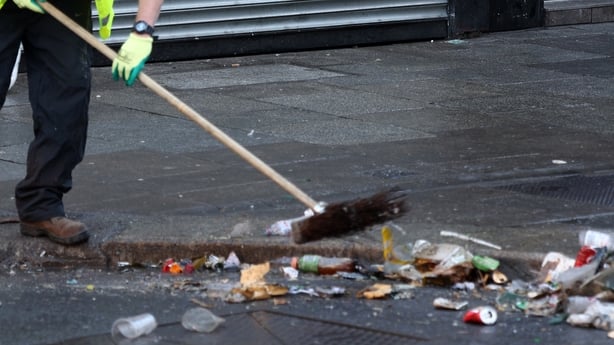World
Increase in significantly and grossly polluted areas

There has been an increase in the number of significantly and grossly polluted areas across Ireland, according to the latest results from the 2023 National Litter Pollution Monitoring System (NLPMS).
The percentage of significantly polluted areas more than doubled from 2.5% in 2022 to 5.8% in 2023. The percentage of grossly polluted areas increased slightly to 0.5% in 2023, up from 0.3%.
The NLPMS measures extent and severity of litter polution using a Litter Pollution Index which is on a scale of 1 to 5, ranging from “unpolluted or litter free” (1) through to “significantly polluted” (4) and “grossly polluted” (5).
The increase in significantly polluted areas across the country was largely due to an increase in litter pollution in rural areas, which saw significantly polluted areas increase from 2.4% in 2022 to 7.6% in 2023.
There was also a decrease in slightly polluted and unpolluted areas combined, which decreased by 1.8%, indicating an overall increase in litter pollution year-on-year.
Minister of State at the Department of Environment, Climate and Communications Ossian Smyth said he was “pleased to see a decrease in the percentage of moderately polluted areas” which saw a decrease from 17.0% in 2022 to 15.5% in 2023.
Cigarette-related litter and chewing gum litter remain the largest and second largest constituent elements of litter pollution. However, there was a 6.5% decrease in cigarette litter from 2022 which now makes up 42.6% of national litter.
Vaping products were included in the 2023 results for the first time, along with single-use items such as wipes, face masks, cotton buds and disposable gloves.

Minister Ossian Smyth said the trends in litter pollution “should serve as a reminder to us all that we need to continue to work hard to ensure we continue our progress to date in combatting litter pollution.”
He added: “The recently published results of the Irish Business Against Litter surveys show positive trends on plastic bottles and cans, with a 30% decrease in the number of drinks cans discarded, and a 20% decrease in the number of plastic bottles on our streets.
“Given that the DRS (Deposit Return Scheme) was still in the transition phase during the IBAL surveys, I would expect to see further dramatic drops in these items ending up as litter being reflected in the 2024 NLPMS results.”
On the continued issue of cigarette-related litter, Mr Smyth noted that a Tobacco Product Plastic Filter Group has been established, which is an Extended Responsibility Scheme for importers and producers who place tobacco filters containing plastic on the market in Ireland.
Mr Smyth said the scheme will help pay for the cost of cleaning up and related infrastructure, as well as raising awareness.
Other Extended Producer Responsibility schemes will be established for single-use items such as wet wipes, balloons and fishing gear containing plastic.










